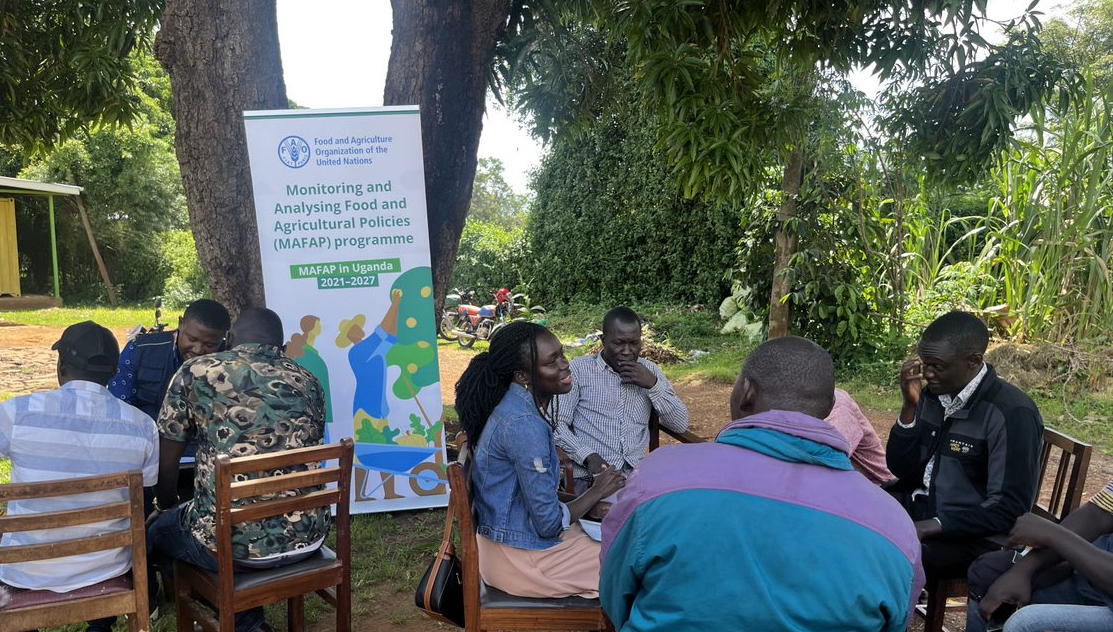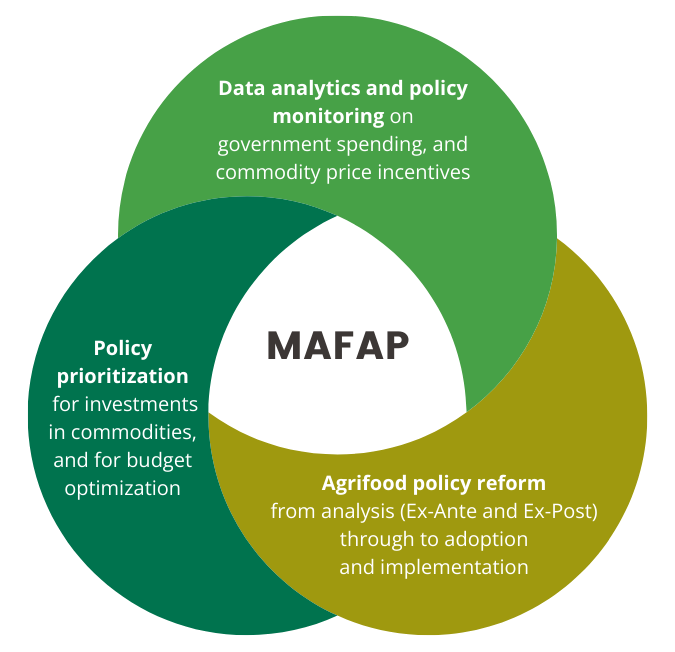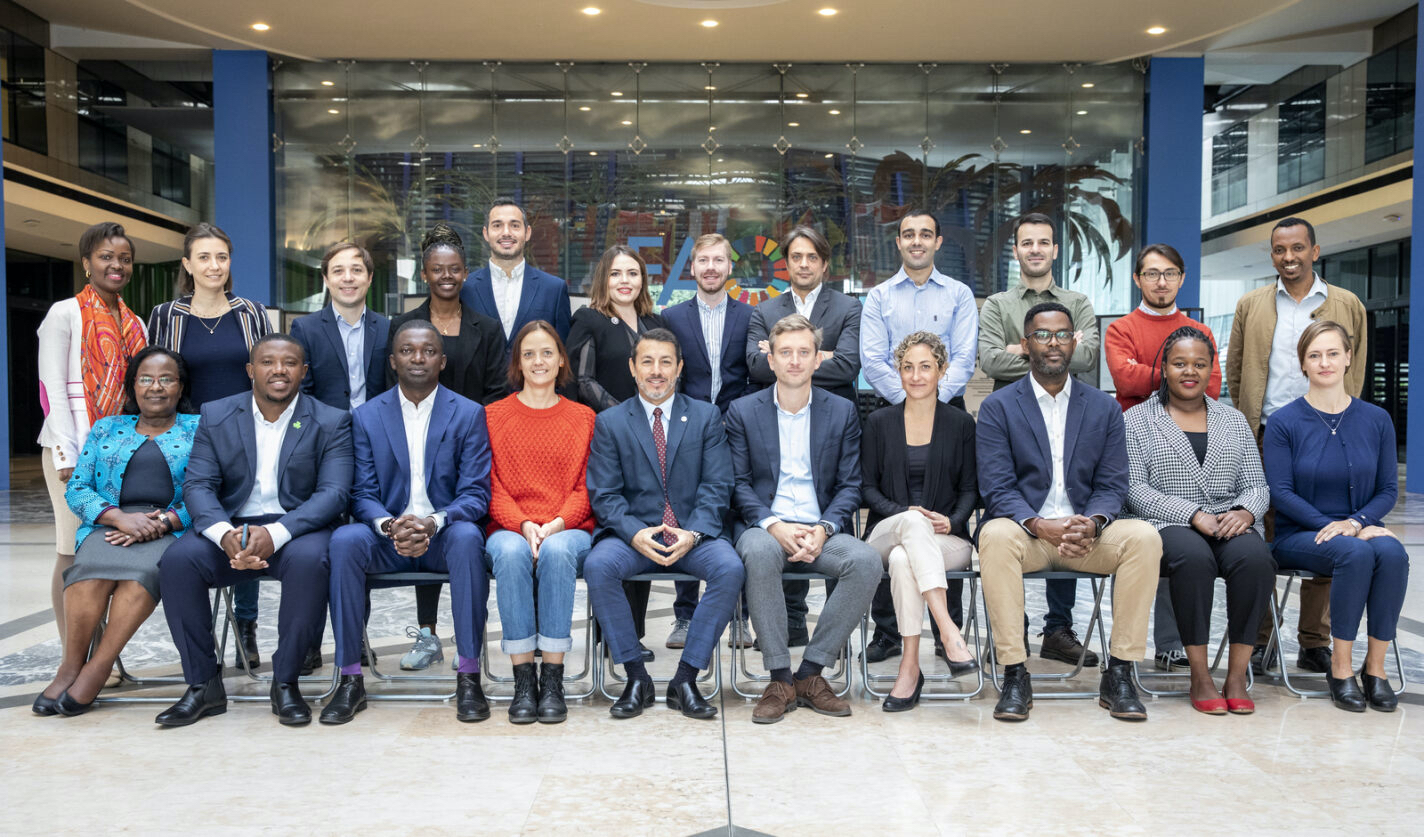Overview

As part of the Agrifood Economics and Policy Division at FAO, the Monitoring and Analysing Food and Agricultural Policies (MAFAP) programme works with mostly African countries to strategically prioritize and reform agrifood policies to accelerate inclusive agricultural transformation and to ensure affordable, healthy diets for all. The programme is leading efforts in the division to monitor agrifood policies, guide agrifood reforms and to better repurpose government agricultural support. The programme does this through 3 key areas:
Agrifood policy monitoring: MAFAP advises governments to repurpose their spending on food and agriculture more strategically. We also carry out analyses on price incentives for commodities to see how trade and market policies affect the prices farmers and traders fetch at key stages of the value chain. This insight helps governments to know if farmers are incentivised to produce or market certain commodities that are important for national food security and nutrition. You can visualize all this on the MAFAP data hub. What's more, the programme serves as a source for cross-country analysis by actively contributing to the Ag-Incentives Consortium, a initiative by several multilateral organizations that compile a unique global database of indicators on policy effects within the agricultural sector.
Policy prioritization: MAFAP has designed an economy-wide toolkit for governments to optimize their current agrifood budget or planned investments to reap greater rewards on four fronts: higher agrifood GDP, lifting more people out of rural poverty, more off-farm jobs, and more people able to afford a healthy diet. As part of this portfolio of support, the team is also supporting governments to prioritize key country commodities by better allocating their limited investment resources to get the best returns in terms of inclusive agricultural transformation objectives.
Agrifood policy reforms: MAFAP helps partner countries to identify policy areas needing reform, produces analyses to inform policymaking, and engages in policy-reform dialogues with local and relevant stakeholders to drive public-policy reform. To date, the programme has contributed to over 30 agrifood reforms for inclusive agricultural transformation and food security and nutrition.
The three work areas fully align with FAO's Strategic Framework 2022–2031 and directly contribute to several Programme Priority Areas (PPAs): BL5 Resilient agrifood systems, BL7 scaling-up investment, BN5 transparent markets and trade, BN1 healthy diets for all – to ultimately work towards SDG 2 Zero Hunger by ensuring agrifood systems are MORE efficient, inclusive, resilient and sustainable agrifood systems for better production, better nutrition, a better environment, and a better life, leaving no one behind.


